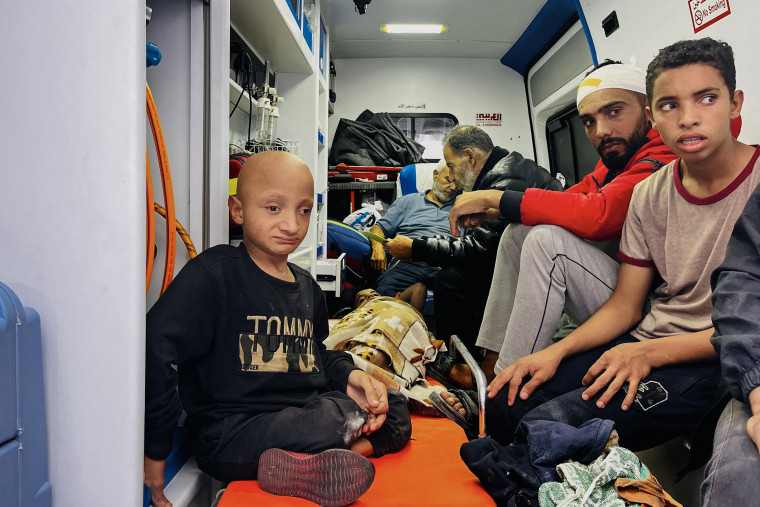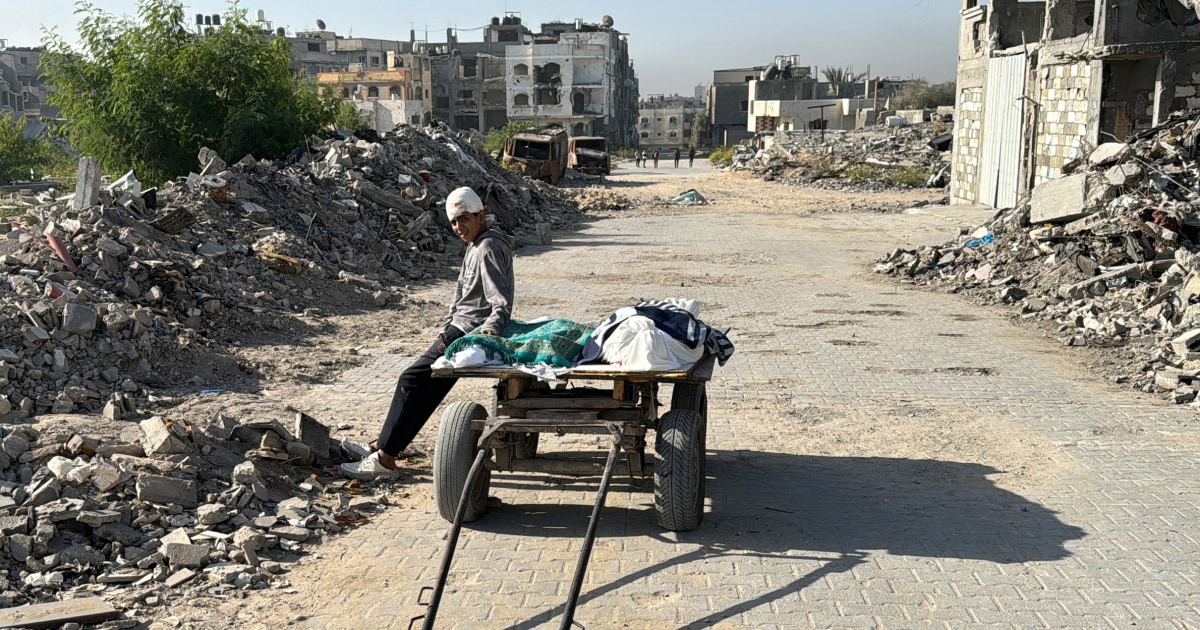Israeli airstrike hits Gaza’s Beit Lahia, Hezbollah names new leader after Knesset bans UNRWA
More than 90 people including 20 children were killed in an Israeli airstrike on a residential building in Gaza early Tuesday, local officials said, the deadliest attack in months as it wages a renewed assault on the north of the Palestinian enclave.
It came hours after the Israeli parliament outlawed a key United Nations aid agency in a move that could throttle the supply of medicine, food and education in the devastated territory.
Meanwhile, in Lebanon, the Iran-backed militant group Hezbollah named a new leader — former deputy Sheikh Naim Kassem — after Israel’s killing of its powerful chief Hassan Nasrallah and his presumed successor.
Gaza airstrike kills dozens
The strike hit a five-story building in the northern city of Beit Lahia housing some 200 people, according to the Gaza government media office. Some 93 people were killed, another 40 people were missing and dozens injured, it added.
The nearby Kamal Adwan Hospital, one of Gaza’s last functioning medical facilities, had no doctors to treat the wounded after a dayslong siege there by Israeli forces, the Palestinian Health Ministry said.
“Critical cases without intervention will succumb to their destiny and die,” the Health Ministry said in a statement.
More than 43,000 people have been killed in the Israeli military’s assault on the enclave, according to local officials, launched after Hamas’ Oct. 7 terror attack in which Israeli officials say 1,200 people were killed and another 250 were kidnapped.
The Israel Defense Forces did not immediately respond to a request for comment on Tuesday’s airstrike from NBC News.

UNRWA ban raises aid fears
With aid groups and officials raising the alarm about a spiraling crisis in northern Gaza, the Israeli parliament, the Knesset, passed a law Monday that could exacerbate that crisis.
The law bans UNRWA, the U.N.’s Palestinian aid agency, from operating inside Israel or having any contact with Israeli authorities.
It’s a hugely controversial move that has drawn criticism from Israel’s allies, including the United States.
The widely held international view is that the agency is an essential player in trying to mitigate the humanitarian catastrophe playing out in Gaza. But Israel has long criticized UNRWA, alleging it has been infiltrated by Hamas and intensifying that pushback after Oct. 7.
UNRWA was established in 1949 to provide aid to the 700,000 Palestinians driven from their homes by the war surrounding the creation of Israel. Today, it is the main supplier of food, water, medicine and other essential supplies to Gaza’s 2 million people.
Israel’s law comes into effect in three months, and will at least severely restrict if not prevent UNRWA’s activities in Gaza and the occupied West Bank, access to which is controlled by Israel.
The organization’s head Philippe Lazzarini called the vote “unprecedented” and “nothing less than collective punishment” for the Palestinians after more than a year of “sheer hell.” In a post on X he said the bill would deprive 650,000 children of their education, accusing it of violating Israel’s obligations under international law.
“This is the latest in the ongoing campaign to discredit UNRWA and delegitimize its role,” he wrote.
In Washington, the United States is “deeply concerned” by Israel’s legislation, which it said would outlaw and agency that “plays a critical, important role in delivering humanitarian assistance to civilians that need it in Gaza,” as State Department spokesperson Matthew Miller told a news briefing Monday.
Secretary of State Antony Blinken just returned from a Middle East diplomacy tour including a trip to Israel, which gets more than $3 billion in U.S. military aid annually.
And a joint statement from Canada, Australia, France, Germany, Japan, South Korea and Britain last week expressed “grave concern” over the legislation. It said the agency provides “essential and life-saving humanitarian aid,” the provision of which would be “severely hampered, if not impossible” without it.

